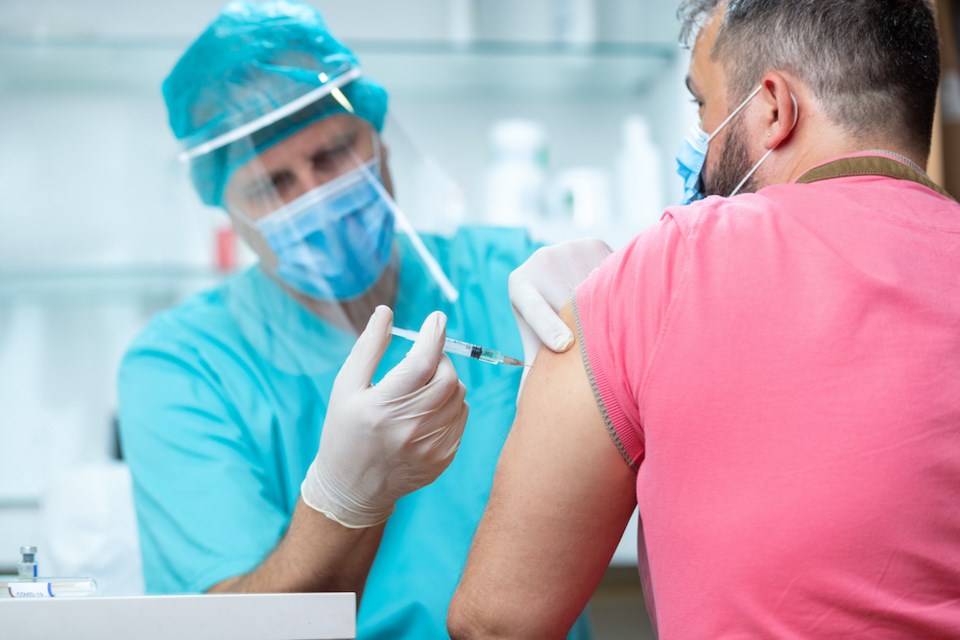A member of Vancouver’s chic Arbutus Club has lost in his bid to recoup dues after claiming the club was prejudicial in barring members who didn’t provide proof of vaccination against COVID-19.
Saul Kahn took his case to the B.C. Civil Resolution Tribunal and claimed a total of $2,939 in restitution.
Tribunal member David Jiang noted Kahn framed his claim more broadly to be about “confidential medical information including proof of vaccination” but made no allegations about anything other than proof of vaccination.
“There is no indication that Mr. Kahn suffered any peculiar prejudice distinct from other members, as they all had to comply [to] the proof of vaccination policy,” Jiang said.
In his June 30 decision, Jiang said it was not in dispute that the club barred Kahn from its facilities Sept. 13, 2021 to April 8, 2022 because he refused to provide his proof of vaccination.
In his claim, Kahn sought $1,939.12 for a refund of monthly dues and $1,000 for interest he alleged the club was unjustly enriched by and earned from his initial membership entrance fee during the same time period.
He also wanted the club to stop barring other members who do not provide confidential medical information, including proof of vaccination. He wanted the club to "reasonably accommodate" members not providing such documentation, "including providing access to all areas of the club not expressly covered by any future governmental edicts, laws, orders or regulations."
Kahn became a full club member in November 2001, paying an entrance fee of $22,500. Several 2022 invoices show he paid monthly dues of $250 in addition to other charges.
It was March 2020 when provincial health officer (PHO) Dr. Bonnie Henry said outbreaks of COVID-19 were an immediate and significant risk to public health. In September 2021, she issued an order titled “Gathering and Events." It required proof of vaccination before people 12 and over entered a place for events.
“It is undisputed that the order applied to the Club as it was an organizer,” Jiang said.
The club’s board of directors passed a policy saying all members and guests over age 12 had to provide proof of their first vaccination dose by Sept. 13, and another dose by Oct. 24, 2021.
Kahn and others hired a lawyer to represent them.
In an Oct. 5, 2021 letter, that lawyer demanded the club provide his clients access without providing proof of vaccination to the club’s pools, skating rinks, physiotherapy and massage therapy service areas, the retail store, and areas of the club not expressly covered by the order.
“The lawyer alleged that the club had unnecessarily restricted member rights and privileges while continuing to charge them monthly dues,” Jiang said.
Jiang said the PHO considered the club a single facility but the lawyer argued it had received different advice from the Ministry of Health.
“On April 8, 2022, the PHO removed the proof of vaccine requirement,” Jiang said. “The club then rescinded the policy that same day.”
Jiang found Kahn had two expectations in the case: that he should be allowed to areas not expressly covered by the PHO’s order and, second, if the club continued to require proof of vaccination, it would not charge him monthly dues for that time period.
The club provided evidence that other such facilities such as the Vancouver Club, Terminal City Club, NSWC Club, Hollyburn Country Club and Glencoe Club all had similar policies.
“I find the club’s policy was a fair resolution of conflicting interests,” Jiang said. “The club had an obligation to verify proof of vaccination for persons entering its place. The club essentially interpreted ‘place’ to mean the entire building, rather than parts of it. I find the club’s interpretation was reasonable, particularly as the order’s purpose was to impede the spread of an infectious disease.”
Jiang further found that no portion of the original entrance fee is refundable and that he could have changed his membership to a social one and reapplied for full membership later.
“As he did not so do so, I find this is another reason that he could not reasonably expect the club to refund his fees,” Jiang said. “At a minimum, he did not take reasonable measures to mitigate his loss.”



